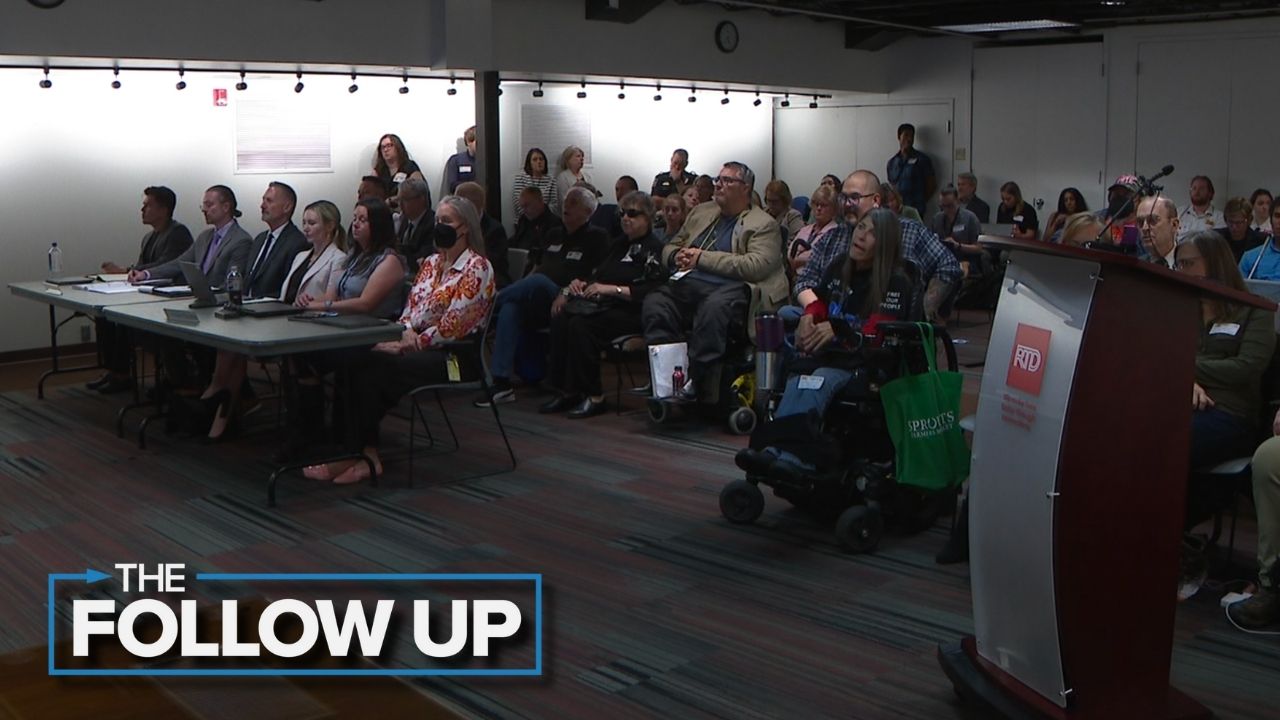DENVER — The Regional Transportation District (RTD) Board of Directors voted late Tuesday night to increase fares to a popular transportation program for people with disabilities.
RTD's Access-on-Demand provides taxpayer-subsidized Uber, Lyft and taxi rides to Denver metro residents with disabilities.
The program has grown 10-fold since it began in 2021. In the beginning, there were 6,250 rides per month. Now, there are more than 62,000 rides per month, with a monthly operating cost of $1 million.
According to RTD, 3,200 of RTD's 14,300 paratransit customers used the service in June, a 16% increase in use since January.

Denver7 Traffic
RTD close to finalizing cuts to popular program for people with disabilities
In February 2024, RTD General Manager and CEO Debra A. Johnson commissioned a peer review study of RTD’s paratransit service delivery. The American Public Transportation Association completed a three-month review of both RTD’s Access-a-Ride and Access-on-Demand paratransit services and noted potential improvements to meet long-term sustainability.
To address the growth and make the program more sustainable, RTD proposed:
- A base fare increase for Access-on-Demand from $0 to $6.50.
- Reducing the subsidy from $25 to $20 per trip.
Late Tuesday, the Board of Directors voted 10-5 to establish a $4.50 base fare, down from the $6.50 proposal. The board also voted to cut the maximum per-trip subsidy from $25 to $20 for up to 60 rides per month.

The Follow Up
RTD delays vote on proposed fare changes to Access-on-Demand program
Prior to the vote, directors listened to hours of testimony from community members who said the changes to Access-on-Demand would be life-altering.
“We’re stressed and tired — tired of fighting for things throughout our entire lives that everyone else takes for granted,” said one woman who is blind.

At Tuesday’s meeting, Denver7 met Brittany Savage, who has experienced blindness since the age of five.
“Freedom is honestly what it means,” she told Denver7 about the program. "Please don't limit my freedom to be an independent person."
Savage used Access-on-Demand to get to the board of directors meeting to share what the changes would mean to her. She, along with others, said a fare increase would force her to choose between going to work and paying for transportation.
Denver7 also talked with Jaime Lewis of the Colorado Cross-Disability Coalition, who has previously spoken out against the changes.
"Even if there was a non-disabled person going from $0 to $6.50... It's a pretty big jump," said Lewis.

Lewis had hoped for the $4.50 fare compromise, but insisted more needs to be done to open the conversation between the board of directors and Access-on-Demand users.
"We have a lot of people watching Denver to set the standard, so we need to do it right," he said.










